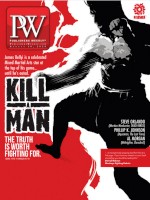Jennings’s After Whiteness (Eerdmans, Oct.) critiques Western higher education as a system formed to create and sustain white supremacy.
The book blends personal narrative, analysis, and poetry. How did you decide on that?
The goal is to get people whose minds normally shut off when you talk about these matters to be open to it. I want people who are scholars and professors and students and administrators and those who are outside the academy to say, “Oh, this book is talking about my world!” The goal is to weave together a wide group of people to all be talking deeply, together, about an ecology that is academic ecology embedded in a wider, damaged ecology.
You write about how easily white people become agents of white supremacy even when trying to be anti-racist.
One of the fundamental problems with whiteness is that it has been habituated in practices of control that are so subtle that people don’t see that they’re actually enacting forms of control even as they enter into relationships and aim for reconciliation. And reconciliation means that one is not in control. It’s what I call demonic virtues that so much of the academy has been shaped to cultivate—control, being a crucial one, is there. But there’s also possession and there’s also mastery. People get run over on the way to achieving complete anti-racist mastery.
As in someone saying “I’m going to be the perfect anti-racist”?
Yes. So many relationships in the academy that try to move against the problems of whiteness collapse because people are aiming for this kind of mastery. And the problem is that the desire is okay, but the means by which we do that are deeply embedded in the practices of mastery. At the end of the day a [white] person has absolutely worn out a person of color in their effort to achieve mastery.
How does one resist “demonic virtues”?
What we really need to capture is those little slices of actions, and sayings, and things that people have done that show that they’ve stepped away from oppressive structures for a second. That little moment when somebody could have made this decision but they made that decision. “Let me stop. Let me listen. Let me imagine the possibility that we have a shared work of resistance.”
How can people support and care for each other as we head into this very unusual academic year?
One of the things I’ve been saying is that not only are we all going to have to think more deeply about the stories that we’re in. In order for us to actually move toward a level of health and wholeness and a kind of clarity of intellectual purpose that is life-giving, we’re going to need to dream out loud together. Do a shared work of dreaming.



 Volume 267
Issue 32
08/10/2020
Volume 267
Issue 32
08/10/2020





